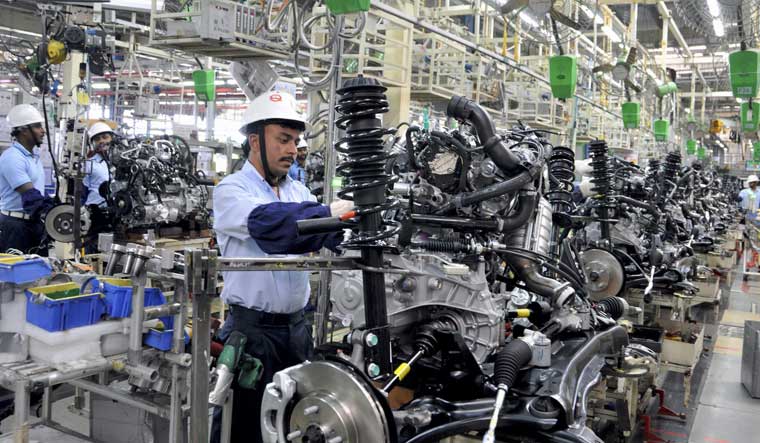The Ease of Doing Business (EoDB) ranking 2019, covering different states and Union Territories, lacked clarity on some counts, the Kerala State Industrial Development Corporation has claimed, and urged the Centre to disclose the criteria details applied in deciding the status.
The EoDB ranking, as published on the website of the Department for Promotion of Industry and Internal Trade (DPIIT), did not reveal either the criteria adopted for scoring and ranking or disclose the feedback from the states and UTs, according to S Harikishore, Managing Director, KSIDC.
As the states nodal agency for industrial promotion, KSIDC has approached the Centre seeking the details in this regard, Harikishore said.
The EoDB ranking was published on the DPIIT website on September 5.
As per the Business Reform Action Plan (BRAP) of 2019, each state had to complete 187 missions.
Of these, Kerala has accomplished 157 missions, which comes to 85 per cent of the mandated missions.
This details in this regard are not available on the website that put out the ranking, according to him.
While it was stated that the ranking would be decided based on the Reform Action points and feedback scores obtained from states and UTs concerned, the details of this process are also not available on the website, the official pointed out.
The details on the yardsticks adopted for the scoring and ranking have not been shared among the states or revealed on the website, which has resulted in lack of clarity regarding the process of ranking.
This is why KSIDC decided to approach DPIIT on the very day the ranking was published, Harikishore said.
Lakshadweep, which has not carried out any reforms as cited on EoDB website, has been ranked 15th. Several criteria announced by DPIIT for EoDB ranking based on BRAP in 2018-19 have been changed in the current ranking, the official claimed.
For instance, the North-eastern States and UTs have been considered together in the current ranking, he said.
For the last four years, Kerala has made steady and systematic progress in formulating and implementing reforms suggested under BRAP.
The record of Kerala in securing the goals set by the Centre in this regard has steadily increased—percentage figures from 2015-16: 22.8 per cent, 2016-17: 26.9 per cent, 2017-18: 52.56 per cent, and 2018-19: 85 per cent.
Kerala government has drawn up and proactively implemented a slew of innovative measures during this period to make the state industry-friendly.
Some of the major steps taken by the government in the last three years included the announcement of an investor-friendly industrial policy that has created the most conducive ecosystem for industrialists and service providers.
As many as seven Acts have been amended to bring in the comprehensive Kerala Investment Promotion and Facilitation Act-2018, which has made the investment process fast and transparent, he said.
Other reform-oriented initiatives that have substantially improved industrial and business atmosphere for multiple sectors and categories included the enactment of Kerala Micro Small Medium Enterprises Facilitation Act-2019, which has considerably eased the investment procedures, including pollution control clearances.
Kerala State Single Window Clearance Board and Industrial Township Area Development Act was a decisive step forward that fast-tracked the investment process across the sectors.
Over 100 projects were showcased at the global investor meet ASCEND Kerala 2020 held in Kochi in January, where major investment decisions were clinched from entrepreneurs from India and abroad converged at the conclave.
During this period, the state also launched the Invest Kerala portal and Kerala Single Window Interface for Fast and Transparent Clearance (K-Swift).
Kerala has also made considerable progress in key parameters such as digital connectivity, skill development and infrastructure development.
Since 2016, as many as 52,137 MSME enterprises have been started in Kerala, which accounts for 40 per cent of all businesses the state has in this job-generating sector.
The state has clocked an estimated investment of Rs 4,500 crore in MSME sector alone, which itself vouch for the strides made by Kerala in industrialisation, the official added.



